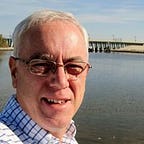The Distrusted Engineer
Most people trust that engineers are truthful. However, this does not mean that government leaders also trust them. In fact, quite the opposite may be true.
A recent poll in the UK found that engineering is one of the top five most trusted professions. Eighty-nine percent of the general public answered that they trust engineers generally to tell the truth. Only doctors and nurses are more trusted.
This is good news, because it validates efforts by leaders of the engineering profession, since its earliest days, to establish truthfulness and integrity as a cornerstone of engineering practice. Samuel Smiles, a Victorian-era self-help guru and moralist, celebrated these virtues in his biography of John Rennie, a Scottish civil engineer who was know for his integrity and “severe truthfulness.”
However, the public’s trust in the integrity of engineers is not always reflected in the attitude of government leaders. Often engineers, along with other technical experts such as scientists and doctors, find themselves trapped in a paradox. Despite having knowledge directly relevant to issues of public concern, government leaders seemingly erect barriers to limit or exclude the participation of experts from decisions on what actions the government should take.
Examples of this paradox abound in recent news about the climate crisis, the COVID epidemic, environmental issues, and so on. But, it is not limited only to the present. The teachings of the Greek philosopher Plato (428–348 BCE) provide insight into the roots of this paradox. Plato wrote about the ideal society in his book The Republic.
Society, he said, is made up of three classes of people: guardians who govern it, auxiliaries who defend it, and producers who provide for its material needs. The guardian class consists of philosophers, like Plato himself, people who pursue knowledge and have deep insight. Auxiliaries are people who seek honor and glory through service to society. And, the producer class consists of people like farmers, artists, craftsmen, and others who work for material gain. Engineering was not a distinct profession in Plato’s time, but people doing the work of engineers belonged to the producer class.
Plato draws the following distinction between philosophers who make up the governing class and producers. Philosophers are guided by the pursuit of knowledge of “pure forms“— ideal concepts — that are the foundation of the physical world we live in. Producers are valued for their skill, but their work is limited to the physical world, which philosophers regard as an imperfect copy of the ideal. Therefore, knowledge that philosophers bring to the act of governing is superior to what producers can offer.
This distinction looks different seen from the producer’s point of view. The producer is a pragmatist. Achieving what they set out to do is proof of the pragmatist’s value and a measure of their integrity. The pragmatist always looks for the best path to the desired result. They will question popular notions about how things are, ideally, supposed to work and discard any that stand in their way. The pragmatic producer cares nothing for the philosopher’s ideals; they care only about what works.
There is, therefore, a basic conflict between philosophers and producers that can be summed up like this: the ideal is the enemy of the pragmatic solution, and vice versa. This is a potential source of aggravation to Plato’s ideal society, for which he offers a simple solution. For the good of society, he says, everyone must know their place and keep to their their assigned roles — philosophers govern and producer/engineers do not.
Of course, we don’t live in Plato’s idealized society. In today’s western democracies, participation in government is open to all. At least that is the ideal. However, Plato’s example suggests a reason why, sometimes, it appears that government distrusts engineers and other experts. Perhaps there is something in the truthful nature of engineers that puts them in conflict with the political class who dominate government today.
Smiles, Samuel, 1904. The Lives of the Engineers: Smeaton and Rennie. John Murray, London. [online: https://minorvictorianwriters.org.uk/smiles/b_smeaton_and_rennie.htm; accessed 31 Aug 22]
Vérin, Hélène, 1998. « Ingénieur » : « L’identité de “l’ingénieur” : quelques repères historiques ». In: Recherche & Formation, N°29, pp. 11–20. DOI : https://doi.org/10.3406/refor.1998.1521
RE: Engineering publishes occasional notes and comment on what it means to be an engineer in a world created by science and technology. Sign up to receive future issues by email.
More by this author: Read about the 19th century roots of the engineering profession and the 72 engineers and scientists named on the Eiffel Tower.
